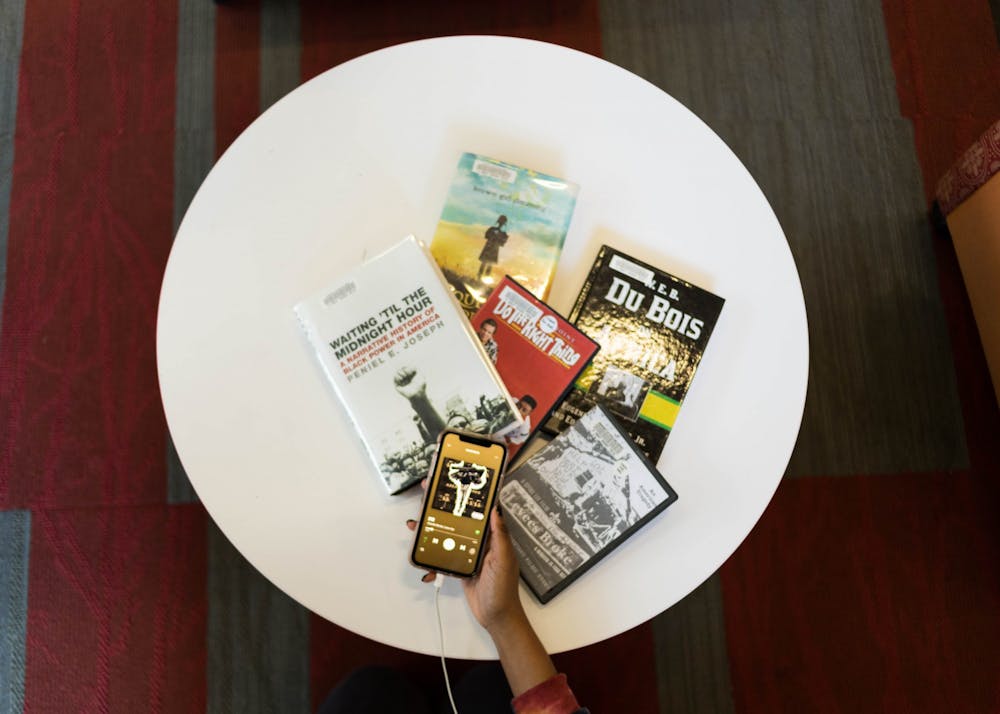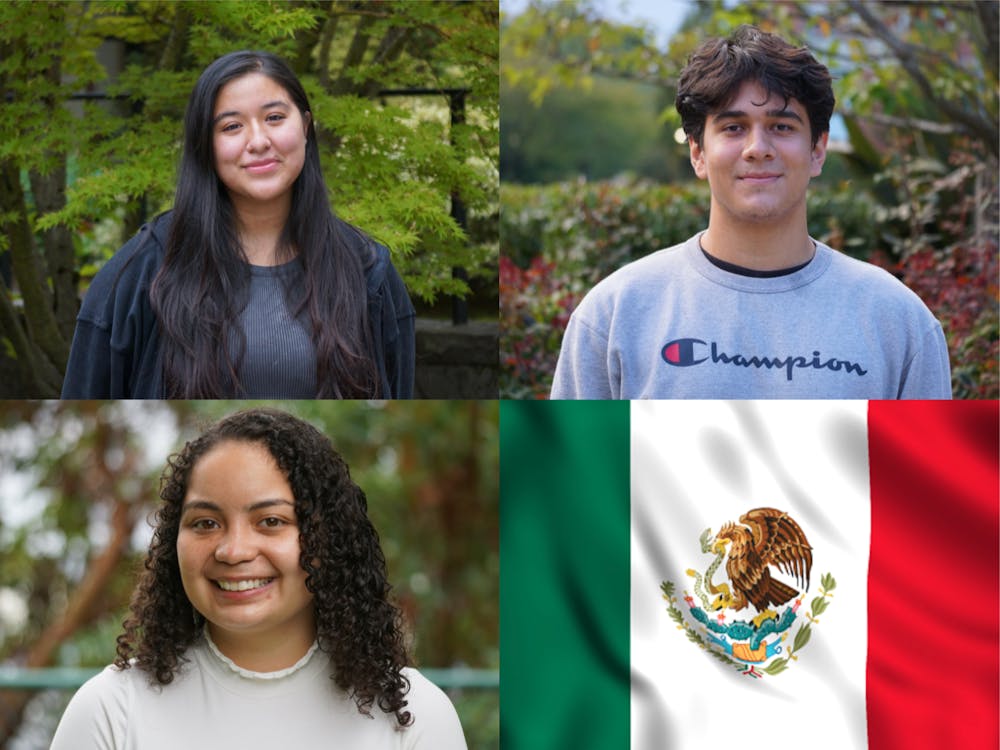For Black History Month this year, The Beacon set out to cover and celebrate it in a way mindful of recent conversations about how to completely and truthfully teach, write about and celebrate the month. Teaching Tolerance, a site that provides resources for educators to talk about identity, diversity and social justice, proposes teaching the history of liberation movements, honoring black civic engagement, recognizing black intersectional identities, and celebrating black literature as some ways to honor this month. With the last point in mind, The Beacon talked to students about their favorite literature, movies, music, art and more to celebrate the month.
We asked students three questions that they could answer in as little or as much detail as they wanted:
- What did you choose, and why?
- How does what you chose relate to your experiences at UP?
- What vision do you have for UP, and/or how does UP have to change?
Below is a selection of quotes from what they shared with us. To hear audio of the conversations and more details, click on the SoundCloud button.
Melissa Allen, senior English major
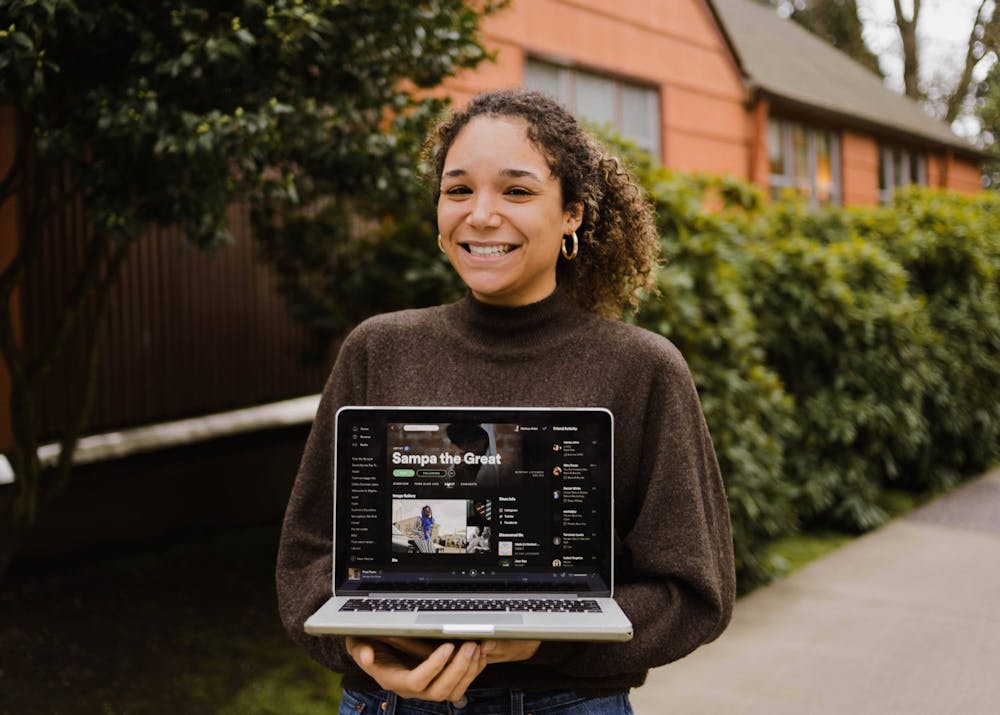
Senior Melissa Allen loves listening to the artist Sampa the Great who sings about the struggles she encounters as a black musician.
“I chose Sampa the Great. She’s a fantastic artist. I think there’s so much energy in her music. She sings about issues that she goes through as a black musician and as a black woman who is from Africa and is living in the United States, and that’s an experience that I am very familiar with. (One of my favorite albums is) ‘The Return.’ There’s just so much variety, there’s not just one consistent theme. There’s so much going on in the album, I think there’s something for everybody in it.
I feel like being at UP, there’s so little black culture that I gravitate more toward it in social media and music and artwork. It’s not just Sampa the Great, there are a ton of other black musicians that I like. But I think I’m just listening to her more just because her album came out, and I’m going to go see her in April.
The biggest thing is that there’s so little black culture here, and I can’t speak for everybody obviously, but I think that’s something that I’ve seen a lot of other people of color on campus say, is that their culture isn’t present on campus at UP. There’s a huge pull toward that in other ways, like how you dress or what you watch or who you listen to or who you follow on Instagram and Facebook.
‘How can UP change?’ There are so many things that UP says they want to work on, and so many initiatives that ASUP is working toward. Expanding the Diversity Center is something they’re working toward. It’s a good step in the right direction. I think anything like that is helpful. But I feel like that’s a way bigger question.”
Jordan Ducree, freshman English and biology major
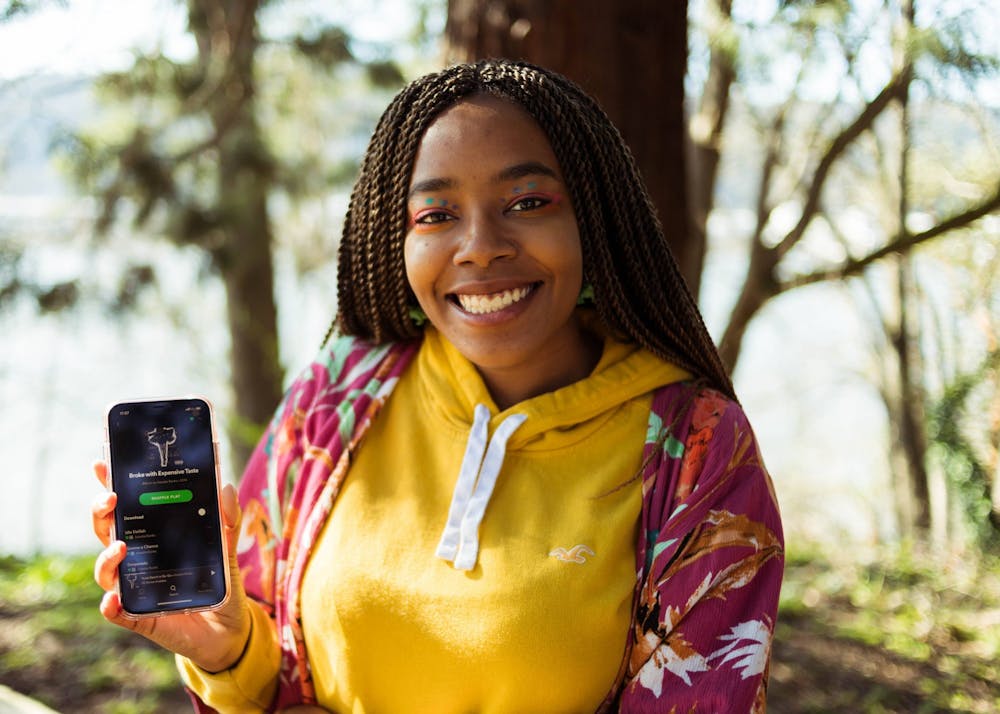
Freshman Jordan Ducree says she discovered the album "Broke with Expensive Taste" by Azealia Banks while preparing for her radio show where she discusses black women artists.
“I chose the album ‘Broke with Expensive Taste’ by Azealia Banks. I really discovered it this year for my radio show. I talk about black women artists who may have contributed something significant to art history or music history, but they’re overlooked. I picked Azealia Banks as the first subject because whenever I heard of her, she was framed by controversy. She’s very opinionated, and when she’s covered by the media, it’s always just about the saucy things that she said. So I did some research into her background. She does some really influential music and paves her own way.
She has said some off-color things, and I don’t want to defend those, but other people maybe because they’re white or they’re men, are still respected as artists, even if the things they’ve said are far worse or the things they’ve done are much more harmful … They are often revered.
This album has been my soundtrack for my first year here. I listen to it when I’m studying because it’s upbeat enough to listen to while walking around and feel pumped up, but it’s not too overwhelming where you can’t just listen to it while you’re studying. It’s a very versatile album for any occasion.
Part of what Azealia Banks stands by is to be proud of who you are as a black woman … She’s very vocal about refusing to bend to mainstream standards people have for that kind of music and for black women in general. I think that’s very inspiring to me. When you go into a new environment, you have to remember to not silence yourself and feel pressured that you have to swing one way or another — you can just be who you are.
I really like it here, the culture is very similar to where I was back home. I appreciated the efforts that UP has made pushing diversity to the forefront of the activities that they do here and the programs — you can go to dialogues to learn something about a new culture or learn why such-and-such is problematic. At the past institutions I’ve had to deal with, they say that diversity is important to them, but it’s more like a footnote than an actual thing they try to strive for. And yes, there are some things here that are a little bit awkward and there’s always room for improvement, but they’re doing a pretty good job of moving toward that in terms of the things that they offer here.”
Gloria Joseph, sophomore sociology major
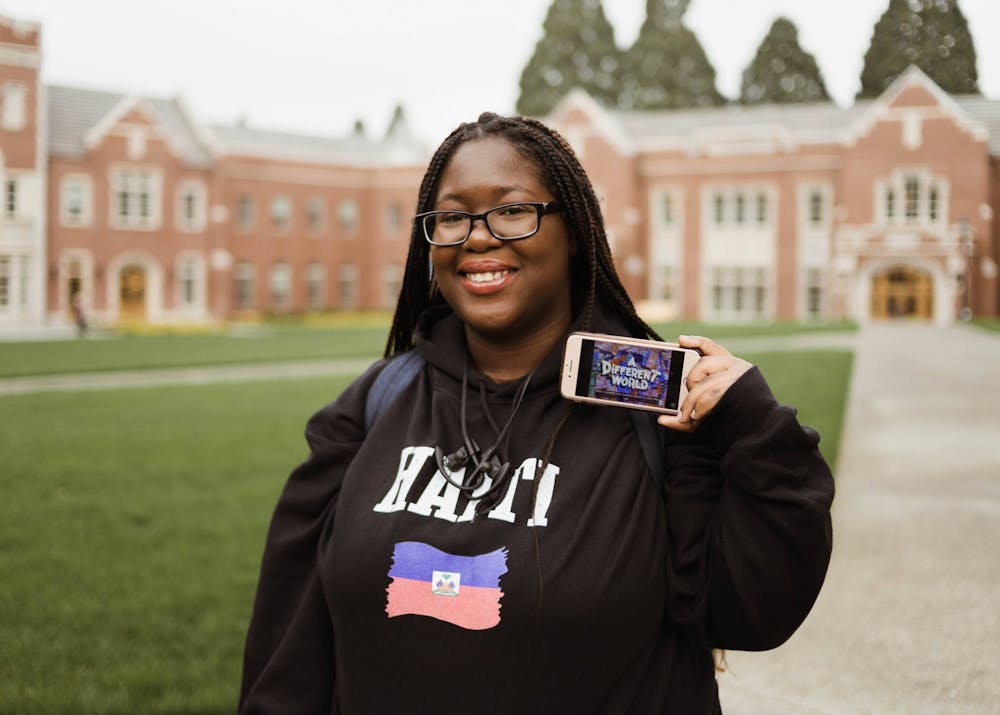
Sophomore Gloria Joseph says the show "A Different World" is part of the reason she wanted to go to college.
“I chose ‘A Different World’ since that has been my show since the dawn of my existence and also because it’s part of the reason why I wanted to go to college. I wanted to originally attend an HBCU, a historically black college or university, but I could not afford to since UP gave me more money. Still love the show. Honestly, the experiences portrayed in the show, some of them I do have here. Not all of them, but some of them do occur, and it taught me how to deal with things on this campus.
Like not to be the angry black chick when I’m in a class where my voice needs to be heard. Or conversing with other black students on campus — not everyone is going to have the same ideas or way to go about things or working to achieve a common goal, which is getting the black voice more out there on campus.
‘A Different World’ kind of relates to the vision that I have for UP but not entirely, in more that providing BSU and just black students on campus a larger space outside of, ‘You get Black History Month and you get MLK Day Day of Service … Also, in the hiring process, seeking out more people of color, and more black people of color. Having more events, different events, because in BSU, you have black students from the Caribbean, you have black students who are directly connected to Africa, and so celebrating their identities and celebrating the identities of African Americans on this campus as well. Celebrating other cultures and educating the mass of students who are not black or POC on these cultures … White students can’t be blamed for what their ancestors did, but however, they do benefit from those systems. Understanding how you can be an ally to get the voices of POC out there more on campus. Spreading the knowledge and letting people know, you have culture on this campus — explore it. Learn to be culturally competent and understanding of other people and how things work.
Creating that space for us to feel space to embrace our cultures and to not have to code-switch. I have my white voice, and I have my black voice. I have a white way of acting when I’m on campus, and then when I’m with other black people, I have my black way of acting on campus. Being able just to be myself in all of my identities rather than having to code-switch 24/7 while I’m on campus. It gets tiring. The code-switching is the most exhausting thing on campus.”
Karl Kahambwe, sophomore political science major

Sophomore Karl Kahambwe's favorite poet is Langston Hughes because of the way his poems touch on topics like heritage.
“I chose ‘The Collected Poems of Langston Hughes.’ He’s probably my favorite poet. The one poem that I have in particular is ‘The Negro Speaks of Rivers’ because of the themes it has regarding roots and heritage. That’s an important topic for me, especially it being Black History Month and knowing where your lineage comes from.
In my fourth and fifth grade class, we’d do a wax museum. We’d choose a historical figure and make a tri-fold poster and then act out the person and hold a pose for 30 to 40 minutes. I chose Langston Hughes.
I recently got this book in November of last year and thought, ‘Oh yeah, I remembered this guy from back in the day.’
Again, regarding the heritage thing and knowing where you’re from and especially going here, at a majority white institution, I just feel that it’s more important to know who you are and where you’re from as a minority student. He talks about the roots that he has being kind of muddy and not always clear just because he doesn’t know where he’s from. For me, I know where I’m from, both of my parents were born in the Democratic Republic of Congo. I have a differing viewpoint from the one he has. But I’m at this school where there aren’t students like me, so it’s an interesting dichotomy. That’s the relation to UP — knowing who you are in a place where you’re not necessarily common.
I recognize that UP will never be a big school, but I’d like to see more diversity. But not just any particular ethnic group or race, but multiple groups because that’s what contributes to the learning process. Being exposed to a lot of diverse groups, that’s part of the enrichment process that we signed up for in college. Also, on the part of the administration, I’d like to see more hiring of professors of color. I’m starting to see more of that. I’d also like to see more support from the administration for diversity clubs and students of color … They don’t have to cater to us, that’s not quite what I mean, but to make it a point that you’re trying to do something for this specific community.”
Dora Totoian is a reporter and the Opinion editor for The Beacon. She can be reached totoian20@up.edu.



